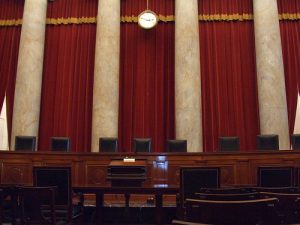 There are many programs and legal statutes that allow whistleblowers to receive compensation for reporting wrongdoing, typically in their place of work. The False Claims Act is just one of these. However, whistleblowers do not typically blow the whistle to receive this compensation. In fact, many are not even aware that they are eligible for it at the time they report the wrongdoing. So, why do whistleblowers blow the whistle?
There are many programs and legal statutes that allow whistleblowers to receive compensation for reporting wrongdoing, typically in their place of work. The False Claims Act is just one of these. However, whistleblowers do not typically blow the whistle to receive this compensation. In fact, many are not even aware that they are eligible for it at the time they report the wrongdoing. So, why do whistleblowers blow the whistle?
Moral Obligation
Of course, the main reason whistleblowers report wrongdoing is because they know they have a moral obligation to do so. It is incredibly difficult to go into a workplace every day, see unethical practices happening, and do nothing about it. Many whistleblowers simply cannot live with the guilt of knowing the government is being defrauded and continue to let it happen. After blowing the whistle, whistleblowers typically feel a sense of peace knowing they have done the right thing.
 Healthcare Fraud Lawyer Blog
Healthcare Fraud Lawyer Blog


 When filing any type of lawsuit, you will need solid evidence to back up your claim. In a qui tam, or whistleblower, lawsuit, that evidence must be solid and clearly establish that your employer, or another individual or entity, defrauded the government. Investigations into a qui tam lawsuit are extensive and take a great deal of time and resources. The courts will likely not move ahead with one unless there is substantial evidence of wrongdoing.
When filing any type of lawsuit, you will need solid evidence to back up your claim. In a qui tam, or whistleblower, lawsuit, that evidence must be solid and clearly establish that your employer, or another individual or entity, defrauded the government. Investigations into a qui tam lawsuit are extensive and take a great deal of time and resources. The courts will likely not move ahead with one unless there is substantial evidence of wrongdoing.  The Occupational Safety and Health Act was passed in 1970 and created the Occupational Safety and Health Administration (OSHA) to protect employees from dangerous working conditions and to standardize workplace safety. Over the years, it has been amended many times and now includes provisions that protect employees from retaliation from their employers when they either report injuries under the OSHA reporting requirements or if they file a complaint against their employer for a violation of OSHA standards. Many states have a state version of OSHA and, in the case of California, have state laws that prohibit retaliation against whistleblowers, as well.
The Occupational Safety and Health Act was passed in 1970 and created the Occupational Safety and Health Administration (OSHA) to protect employees from dangerous working conditions and to standardize workplace safety. Over the years, it has been amended many times and now includes provisions that protect employees from retaliation from their employers when they either report injuries under the OSHA reporting requirements or if they file a complaint against their employer for a violation of OSHA standards. Many states have a state version of OSHA and, in the case of California, have state laws that prohibit retaliation against whistleblowers, as well. While whistleblowers sometimes get a bad rap as “snitches,”the opposite in fact is true. By revealing their employers’ illegal actions, whistleblowers help society in ways that only whistleblowers can. If you have any doubts about whether you should blow the whistle on your employer’s illegal actions, contact the whistleblower attorneys at
While whistleblowers sometimes get a bad rap as “snitches,”the opposite in fact is true. By revealing their employers’ illegal actions, whistleblowers help society in ways that only whistleblowers can. If you have any doubts about whether you should blow the whistle on your employer’s illegal actions, contact the whistleblower attorneys at  Reporting your boss for engaging in unlawful conduct at work not only requires courage but also thick skin. While some will undoubtedly tout you as a hero as soon as you blow the whistle, others may not be as friendly or supportive. You should prepare yourself for the worst, from your employer as well as from the public, should you decide to blow the whistle on your employer. Despite the risks of whistleblowing outlined below, however, remember that you are contributing to justice and ultimately contributing positively to society when you report illegal conduct. If you are unsure, nervous, or scared about how best to proceed, speak with one of the lawyers at
Reporting your boss for engaging in unlawful conduct at work not only requires courage but also thick skin. While some will undoubtedly tout you as a hero as soon as you blow the whistle, others may not be as friendly or supportive. You should prepare yourself for the worst, from your employer as well as from the public, should you decide to blow the whistle on your employer. Despite the risks of whistleblowing outlined below, however, remember that you are contributing to justice and ultimately contributing positively to society when you report illegal conduct. If you are unsure, nervous, or scared about how best to proceed, speak with one of the lawyers at  You blew the whistle on your employer’s illegal actions, and now your employer is retaliating against you. This is not an unusual situation, but it is an illegal one. Both federal law and California law protect whistleblower employees from employer retaliation and impose large fines on employers who choose to ignore this law. If you have been retaliated against at work for whistleblowing, you may be wondering what you can do to remedy this situation. Contact the attorneys at Willoughby Brod today to have your case reviewed for free and receive actionable next steps for what you can do in this situation.
You blew the whistle on your employer’s illegal actions, and now your employer is retaliating against you. This is not an unusual situation, but it is an illegal one. Both federal law and California law protect whistleblower employees from employer retaliation and impose large fines on employers who choose to ignore this law. If you have been retaliated against at work for whistleblowing, you may be wondering what you can do to remedy this situation. Contact the attorneys at Willoughby Brod today to have your case reviewed for free and receive actionable next steps for what you can do in this situation.
